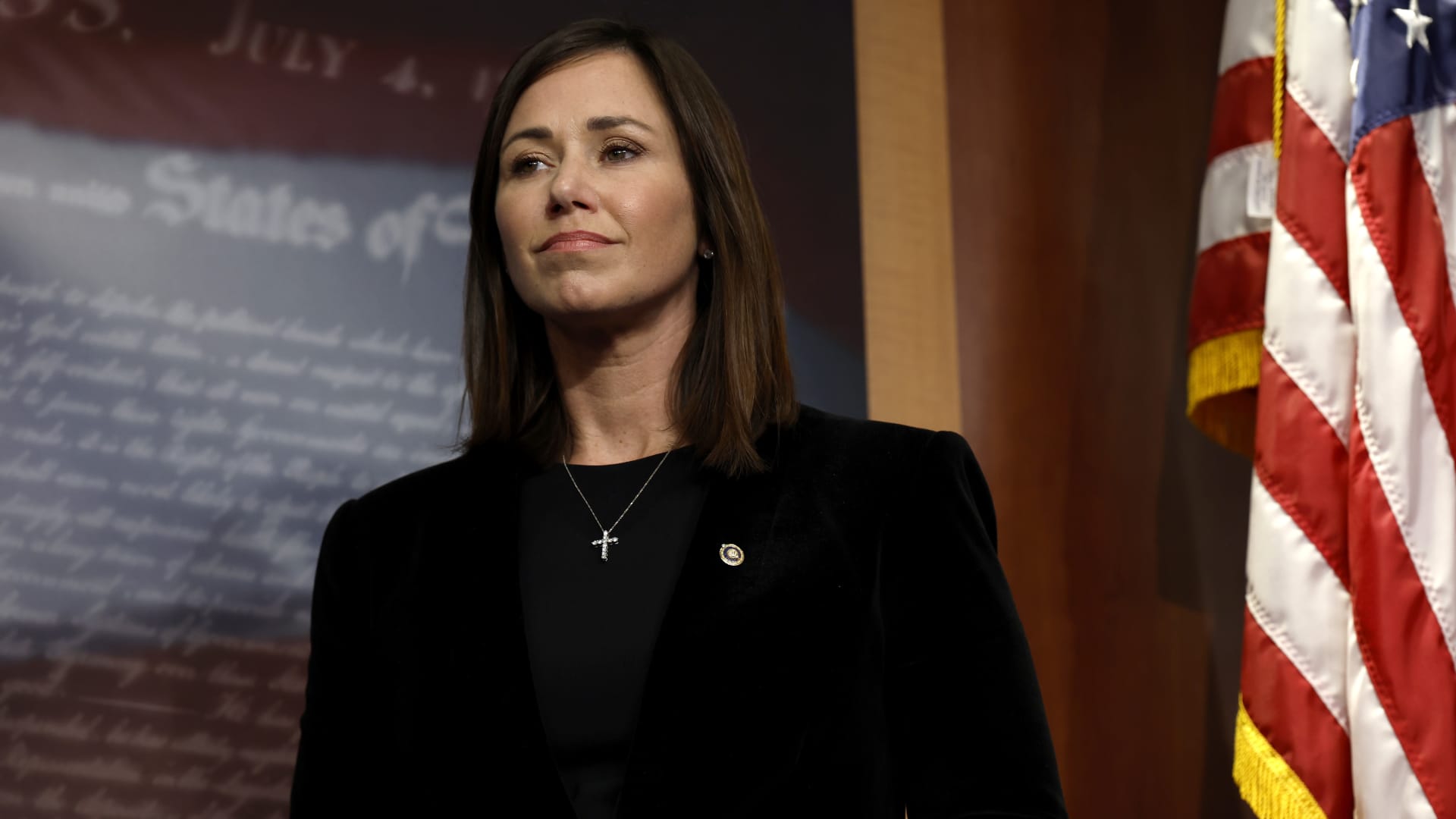Biden rebutter Sen. Britt blasted for recycling 20-year-old sex traffic story to attack border policy
Karla Jacinto Romero experienced sex trafficking in Mexico from 2004 to 2008, twenty years before Biden took executive office.

Sen. Katie Britt, R-Ala., is seen in the U.S. Capitol during votes on Tuesday, January 9, 2024.
Anna Moneymaker | Getty Images
Alabama Republican Sen. Katie Britt is under fire for using what appears to be a sex trafficking victim's experience from the early 2000s to condemn President Joe Biden and his border policy.
Britt gave the GOP rebuttal to Biden's State of the Union address to Congress this week.
During her rebuttal, Britt referenced a visit to the Del Rio sector of the Texas border where she depicted a seemingly personal conversation with someone who had survived sex trafficking by groups in the U.S.
"That's where I spoke to a woman who shared her story with me," Britt said in the video. "She had been sex trafficked by the cartels starting at the age of 12."
The victim Britt referenced was Karla Jacinto Romero, who was sex trafficked in Mexico — not the United States, as the senator suggested — from 2004 to 2008, twenty years before the Democrat Biden became president.
The journalist Jonathan Katz first pieced together Britt's presentation of Jacinto Romero's experience in a TikTok video.
Britt seemingly attempted to present the anecdote as a damning example of Biden's border management.
"We wouldn't be okay with this happening in a third-world country," she added. "President Biden's border policies are a disgrace. This crisis is despicable."
But Jacinto Romero did not experience sex trafficking in the U.S. as a result of Biden's border policy — because he was not president from 2004 to 2008 and because she was sex trafficked in Mexico.
Katz slammed Britt for the implication that Jacinto Romero divulged her experiences privately.
"Britt tells it like she's sitting by the banks of the Rio Grande, like holding her hand, like getting her to tell the story that she won't tell anyone else," he said.
Instead, he added, Jacinto Romero is a public advocate for sex trafficking and has repeatedly shared her story publicly to shed light on the issue. Jacinto Romero has testified to U.S. Congress, the Mexican House of Representatives and the Vatican, according to a short 2015 profile in a U.S. House of Representatives document.
Britt visited the Del Rio area in January 2023 on a joint trip with Sens. Marsha Blackburn, R-Tenn., and Cindy Hyde-Smith, R-Miss. During that trip, Jacinto Romero appeared at a press conference with Britt, Blackburn and Hyde-Smith where she publicly relayed her grueling sex-trafficking story.
Britt has faced a flurry of online criticism since the anecdote was exposed as misplaced, compounding previous disapproval about her rebuttal's delivery.
"So not only was Katie Britt a flaming embarrassment. She is also an out and out liar. Alabama's finest!" political scientist Norman Ornstein wrote in an X post.
Ornstein is a part of a broader chorus of journalists and others slamming Britt for her storytelling.
"This was old Alabama politics. The politics of fear and confusion," Alabama columnist Kyle Whitmire wrote on X. "Britt blamed Biden for an assault that appears to have happened 20 years ago. Her spokesman won't give a clear answer when asked."
Christine Pelosi, political strategist and daughter of former House Speaker Nancy Pelosi, demanded in a Saturday X post that Britt apologize "for lying about the horrific case of sexual violence that you exploited for political purposes."
Sean Ross, spokesperson for Sen. Britt, did not deny that Jacinto Romero is the sex-trafficking survivor in question but doubled down on Britt's story.
"The story Senator Britt told was 100% correct," Ross said in a statement to CNBC. "But there are more innocent victims of that kind of disgusting, brutal trafficking by the cartels than ever before right now."
Though sex trafficking has taken place in the U.S. under the Biden administration, Jacinto Romero's sex-trafficking story is not an example of it.
"Today, Karla is a happy and successful mother of two beautiful girls, a wife, a student, and an international activist," reads the 2015 House document.

 Konoly
Konoly 































